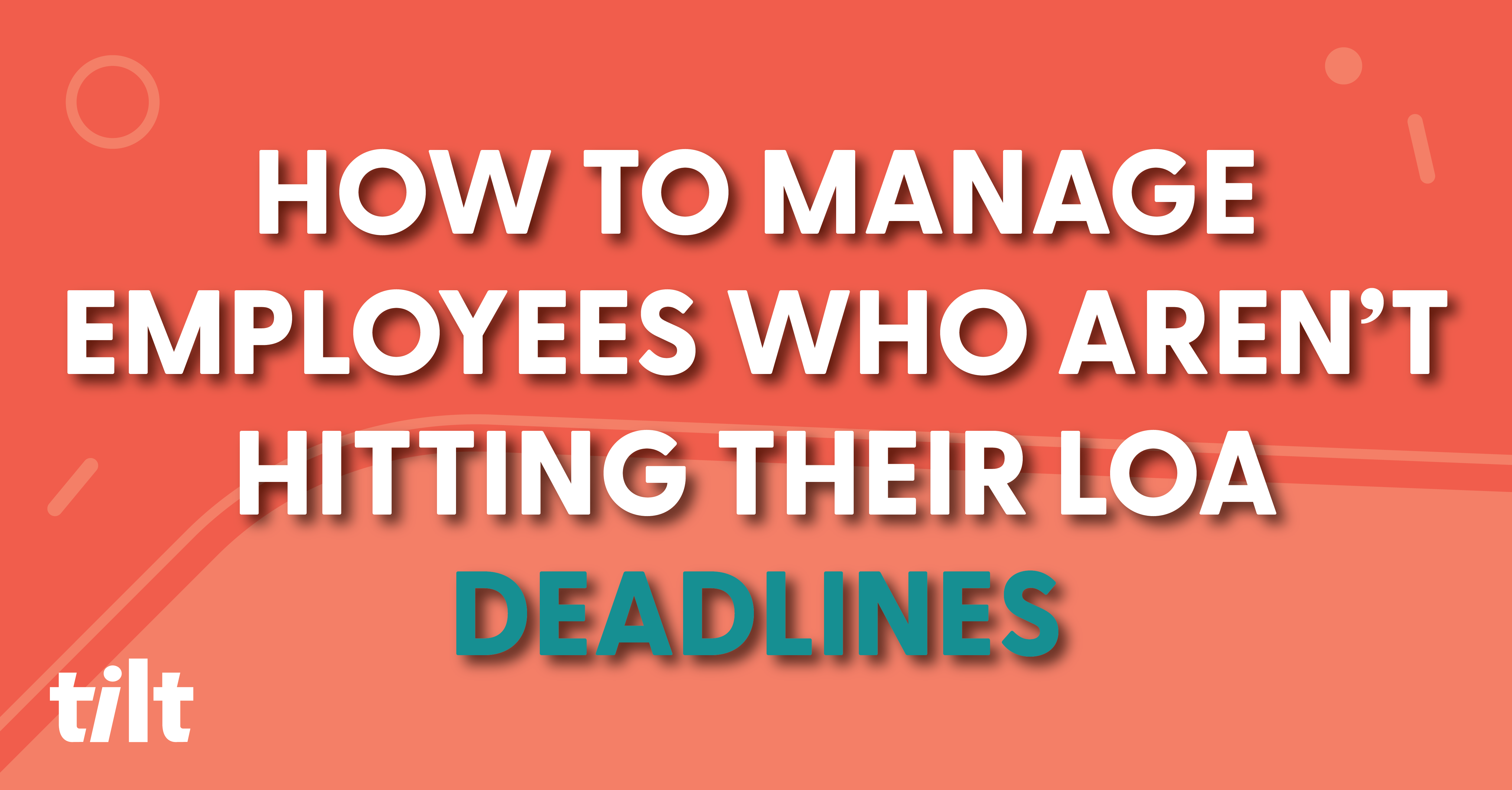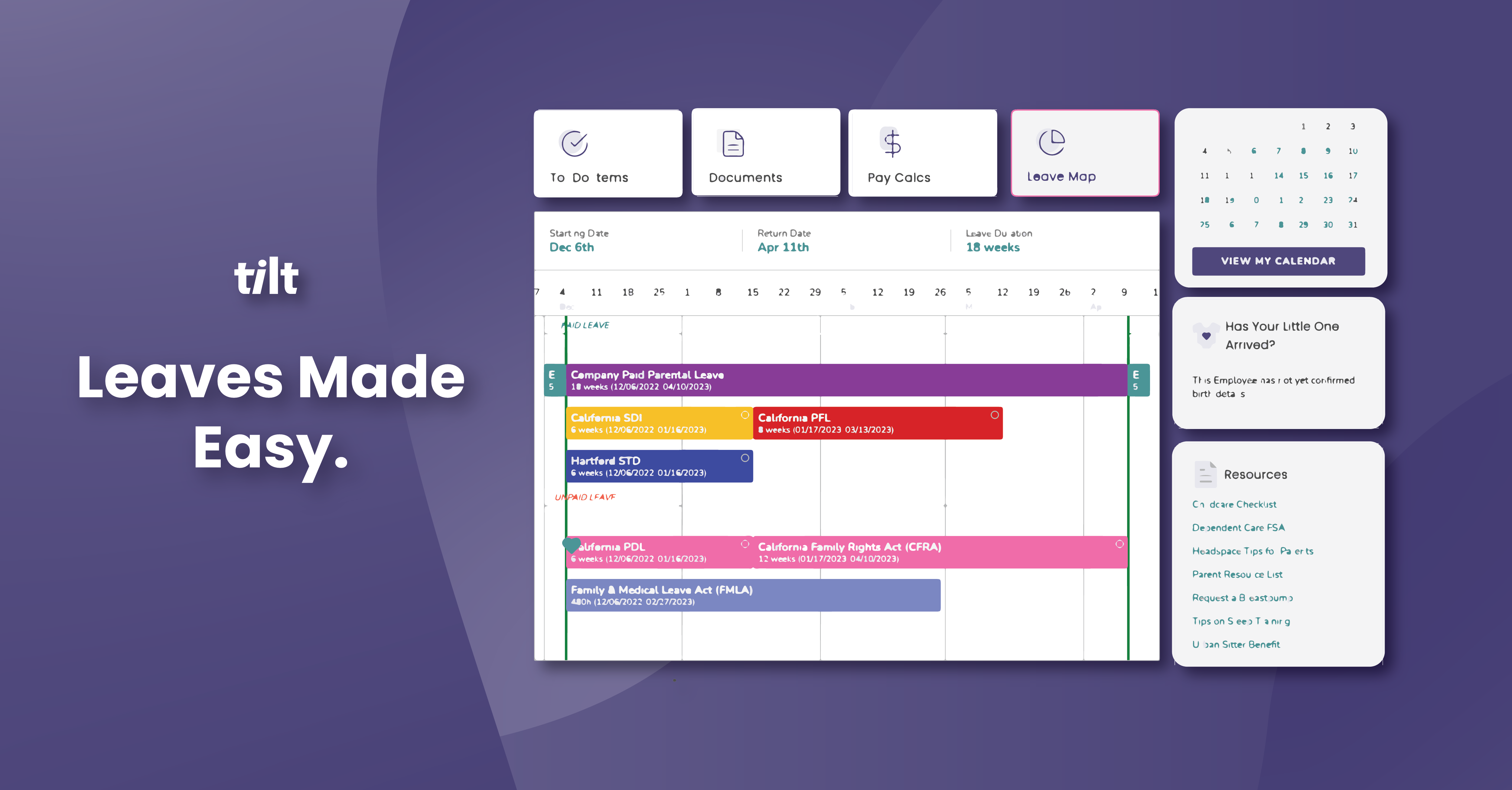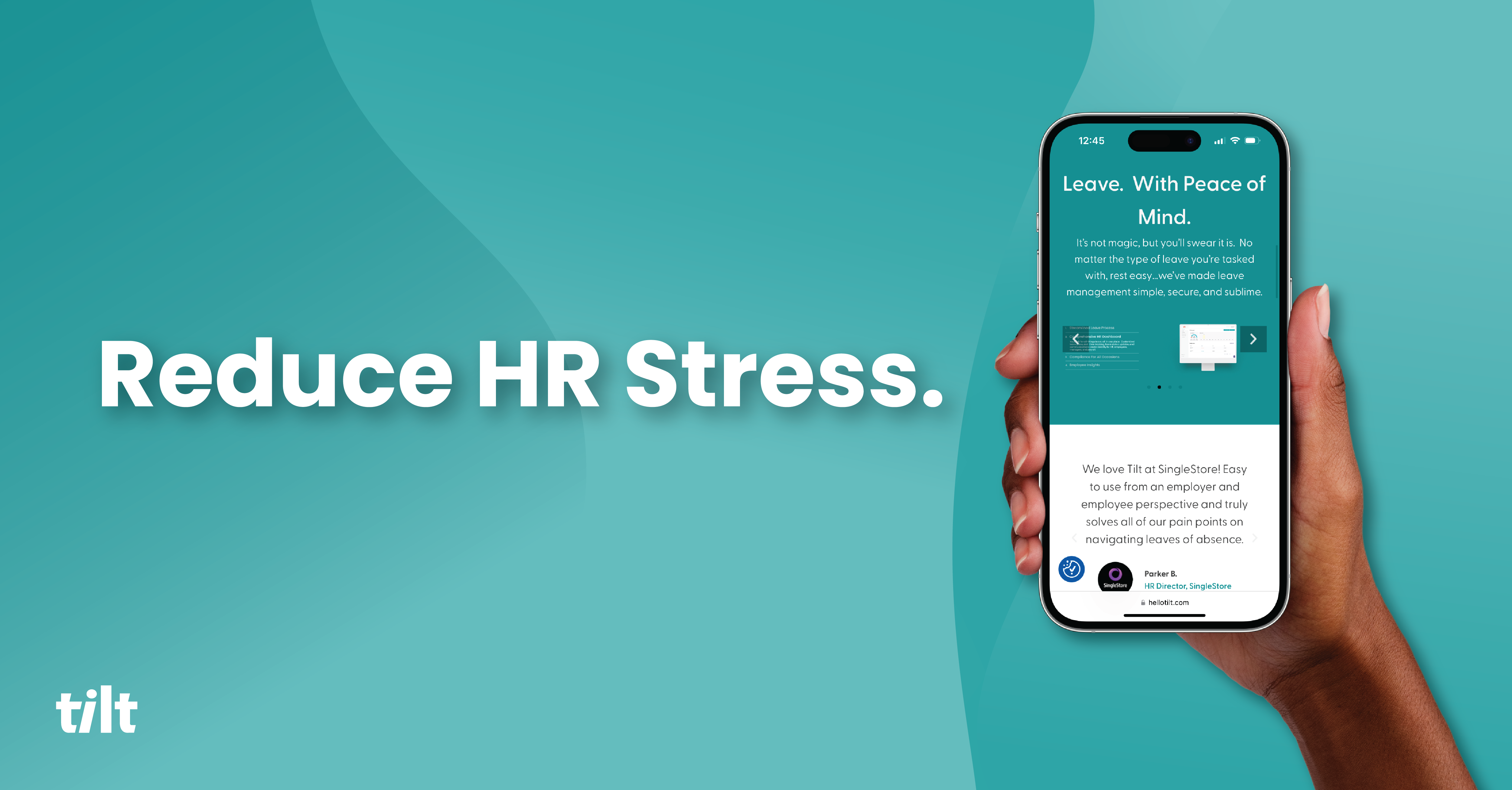If you’re like most People Ops pros out there it seems like your laundry list is growing its own laundry list. A People Ops laundry list is like an organizational scavenger hunt, but instead of searching for hidden treasures, you’re on a quest to untangle communication knots, iron out employee relations, sort through benefits and policies, cleanse compliance stains, press your People Ops programs forward, fold and organize training initiatives, and mend the fabric of company culture.
Firmly entrenched at the bottom of your hamper of happiness, right underneath explaining for the 4th time why it’s not okay to microwave fish in the break room, is navigating leave of absence management.
More specifically, the communication conundrum of coordinating with employees who are navigating the complex world of leave, frequently for the first time. Employees can’t always be counted on to come through with the cordial completion of paperwork, and that can have a confounding effect on them, and your organization, in numerous ways.
Why Are Employees Missing LOA Deadlines?
In order to effectively manage employees who aren’t hitting their LOA deadlines, it’s helpful to identify the root causes behind why employees are missing LOA deadlines in the first place. This involves a thorough examination of all potential factors that may be influencing their ability to complete the required tasks.
These factors can range from personal challenges, workload issues, or communication gaps either between the employee and their manager or with your People Ops team. By understanding these underlying issues, your team can tailor systemic solutions that also address the specific needs of individuals, fostering a supportive work environment.
How to Help Employees Hit Their Deadlines
As a People Ops leader, process perfection is ever-elusive, but that are a few elements you can implement when it comes to ensuring your employees aren’t experiencing any delays in their leave of absence journey.
An Open-Dialogue Framework: Consider implementing a framework to encourage open dialogue when it comes to leaves of absence. Allow employees to express concerns and obstacles they face during leave periods so you can identify areas that may need clarity or extra attention from your team.
This proactive approach not only helps in resolving immediate challenges like delays in filing paperwork but also contributes to long-term employee satisfaction and improved overall performance.
Set and Communicate Clear Expectations: Setting clear expectations is paramount in your efforts to manage employees’ LOA deadlines. Articulate precise guidelines, outlining the importance of meeting leave-of-absence timelines and the impact on the overall workflow. Clarity on expectations helps employees understand their responsibilities during leave periods and enables better planning.
Providing accessible resources and support systems will also help ensure that employees have the tools necessary to fulfill their obligations. By establishing transparent guidelines, you create a foundation for accountability, reducing the likelihood of missed deadlines and contributing to a more organized and efficient work environment.
Policy Review and Adjustments: Regular policy reviews and adjustments are essential for effective LOA management. Proactively assessing your organization’s existing leave policies, ensuring they align with the company’s goals and values.
This includes evaluating the feasibility and clarity of guidelines regarding leave-specific deadlines. By staying attuned to organizational changes and employee feedback, you can make informed adjustments to your policies, creating a system for success that is both realistic and supportive.
Your adaptability to policy shifts and doubling down on clarity not only promotes compliance with legal standards but also reflects a commitment to fostering an inclusive work environment. Your policies should evolve to meet the dynamic needs of your workforce, the details of which should be easy to access and comprehend.
The Consequences of an Employee Missing LOA Deadlines
The consequences of missing Leave of Absence (LOA) deadlines are multifaceted. Firstly, employees may find that their approved leave duration is subject to modification, or extension, based on your company’s policies. A missed LOA deadline might also prompt a reassessment of the original leave approval, potentially leading to adjustments to the leave period. This could impact the employee’s ability to take the planned time off as initially agreed upon.
Financial implications are also noteworthy, as missing LOA deadlines can result in payroll adjustments. Delays in processing paid time off or modifications can disrupt an employee’s financial planning in their time of need.
Your organization might also be susceptible to significant work disruptions. Well-planned LOAs help ensure a seamless transition in the workflow, and deviations from these timelines can lead to unexpected gaps in productivity. Additionally, failure to adhere to compliance requirements related to leaves of absence may result in legal or regulatory issues for the organization.
The Value of a Streamlined Leave Management Process
People Ops laundry lists have a habit of spiraling out of control. When it comes to leave of absence management, having a consistent, streamlined process with clear communication will help ensure that when employees have leave of absence deadlines to hit, they have the information and support they need to do so.
Evaluating your leave policies, as well as your LOA management processes, will allow you to identify opportunities to shore up deficiencies and make sure that deadlines are met, employees are taken care of, and operations run smoothly.
About Tilt
Tilt is leading the charge in all things leave of absence management through easy-to-use tech and human touch. Since 2017, our proprietary platform and Empathy Warriors have been helping customers make leave not suck by eliminating administrative burdens, keeping companies compliant, and providing a truly positive and supportive leave of absence experience for their people.







